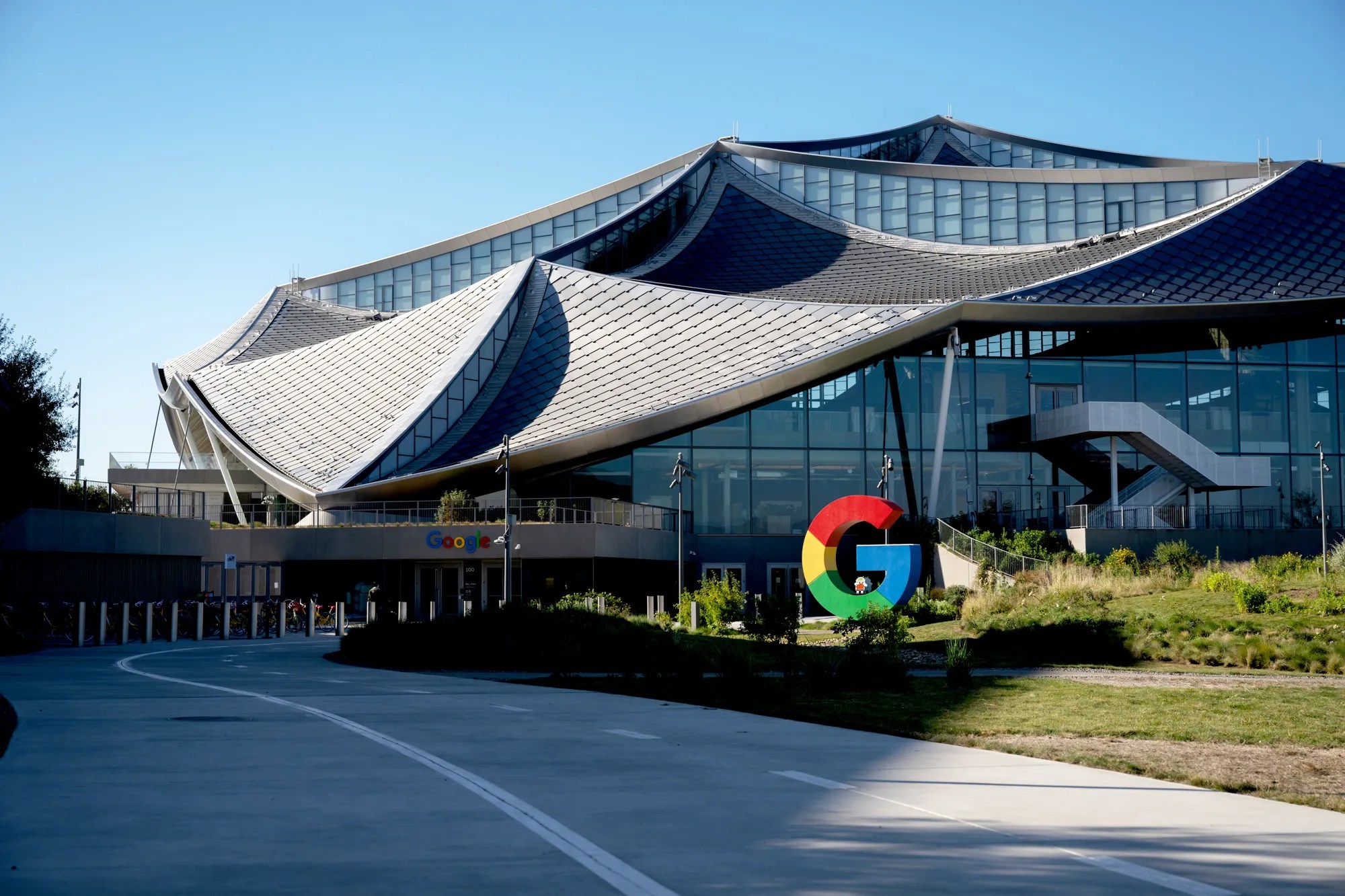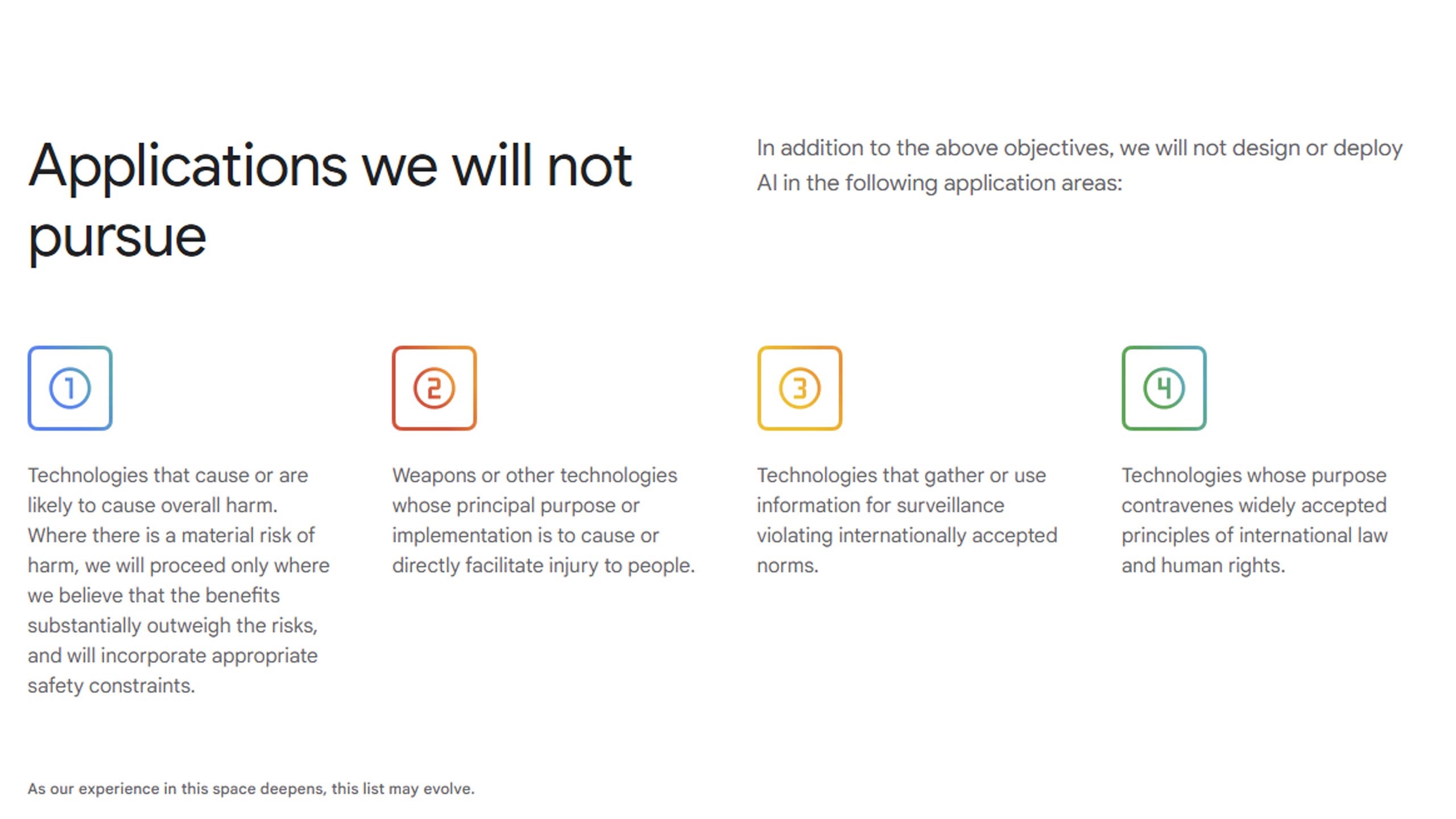
See in full size
In Google’s previous principles, “Applications that we will not chase”There was a section titled. In this section, the company undertakes that it would not develop surveillance technologies that violate weapons systems and internationally accepted norms aimed at damaging people directly. However, this part is no longer in the most up -to -date version.
Old commitments disappeared
See in full size
This change, leaving the promise of avoiding the company’s direct weapons and surveillance technologies To a wide and open frame It is interpreted as being oriented. James Manyika, Senior Vice President of Google’s Research and Technology Units, and Demis Hassabis, CEO of Deepmind, shared a blog post that explains why the new policy is necessary. In the article, artificial intelligence has now become a “general purpose technology, and therefore it was argued that the principles should be updated.
When Google first published the artificial intelligence principles in 2018, Project Maven, which led to great controversy within the company, ended the military project and decided not to renew the project. This project with the US Department of Defense included the analysis of drone images with the help of artificial intelligence. Hundreds of Google employees who opposed this project in the OM period left their jobs, and thousands of people participated in the protest signature campaign.
However, in 2021, the company began to turn to military projects by offering an aggressive offer for the Pentagon’s large -scale cloud computing tender Joint Warfighting Cloud Capability. At the beginning of 2025, the Washington Post reported that Google was working to expand the use of artificial intelligence vehicles with the Israeli Defense Ministry.
This news, Our mobile application download and download,
You can read at any time (even offline):





